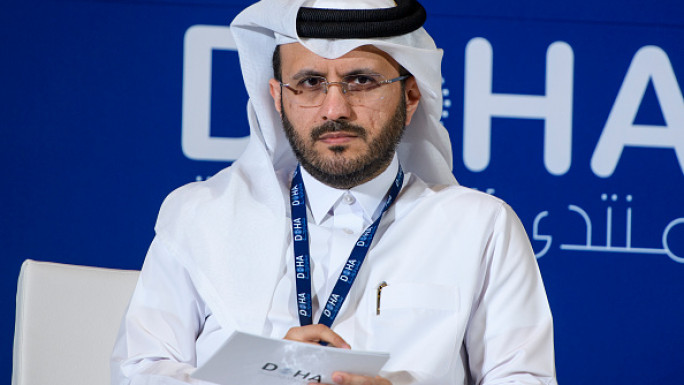
Will Lebanon turn to Starlink in the event of war with Israel?

Following months of cross-border attacks between Israel and Hezbollah, tensions are at an all-time high.
Over the weekend, 12 Druze youths were killed in a rocket attack in the occupied Golan Heights which Israel blamed on Hezbollah. Despite the Lebanese group denying responsibility, Tel Aviv has vowed to respond forcefully, raising fears once again of a devastating regional war.
Amidst such vows of escalation, concerns of disruption to Lebanon’s internet - as has been happening in Gaza for months - are increasing, with mounting dread for the repercussions this would have on vital sectors across the country, already strained by a suffering economy.
In response to these fears, some politicians in Lebanon, including Lebanese Prime Minister Najib Mikati, have called for the activation of Starlink, a satellite internet service operated by US billionaire Elon Musk, to ensure continuity to the country’s internet connection in the event of disturbances caused by fighting.
According to media reports, the US ambassador to Lebanon, Lisa Johnson, is reportedly supervising allowing Starlink to start operations in Lebanon and has been coordinating with Mikati on the proposal among the Lebanese Council of Ministers.
The New Arab couldn’t confirm these reports, but discussions concerning Starlink are feared to be a precursor of intensified violence since Elon Musk’s internet network has been associated with conflict zones like Ukraine and Gaza.
The notion of using the service, however, is driving wedges within an already-divided Lebanese security and political class. On one hand, some officials see the move as a potential security and intelligence threat, with implicit political goals from Washington. Others, however, see it as a necessity.
Lebanese Minister of Communications, Johnny Corm, refutes claims that enabling Starlink in Lebanon is purely an American wish. At least 15 ambassadors in the country are demanding the same, he said.
“Starlink is important, not only for diplomats but also for citizens and companies. A sudden interruption in the internet may lead to paralysis in many vital sectors,” Corm told The New Arab. “Therefore, enabling Starlink is not only seen as a technical option but as a necessity,” he added.
“It’s imperative for Lebanese citizens, and isn’t only demanded by ambassadors and Western countries.”
Security fears around Starlink
The idea of having a US company operating in Lebanon and having unlimited access to internet services and users’ data is raising fears among some Lebanese security officials who say that Starlink may have implicit political motives in operating in Lebanon. According to reports, Israel is also looking to use Starlink services in case of a full-scale war.
Corm refused to comment on the sensitivity of intelligence concerns linked to the demands of having Starlink services in Lebanon.
“I am positive that everyone today is seeking a real alternative in case of an internet shutdown,” Corm stressed, adding that Starlink will not start operating in Lebanon without the approval of security forces and there will be “surveillance” over the service.
“The government will not be a mere third party in this arrangement,” Corm added.
Abed Kataya, Digital Content Manager at SMEX, an organisation that advocates for digital rights, disagrees.
“The Lebanese law grants the state a complete monopoly over the communications sector, which handles licensing and operation,” Kataya told TNA.
“What is happening now is that they are seeking to introduce [the Starlink] service without adherence to current laws. Rather, they are trying to introduce it into the country through governmental decisions and approvals, which constitutes a legal violation.”
|
|
Calls to activate Starlink services are not a recent phenomenon. Corm has been attempting to get security officials’ approvals since last year but has failed to win them over. This has reportedly led Washington to ramp up pressure on Lebanese officials, most notably Mikati, to approve Starlink operations.
According to reports, Mikati on 24 June requested to include the topic on the agenda of the government’s sessions to proceed with approvals.
“Amid the conditions we’re experiencing, citizens’ interests in the case of an internet outage must be considered,” argues Corm.
“Ukraine benefited from Starlink during the war with Russia, and the right of the Lebanese to have a secure connection cannot be ignored,” the minister added, noting that Starlink would be one option, and would probably be more costly so it would not entirely replace local internet service providers in Lebanon.
Still, security remains a major issue.
Kataya said that handing over users’ data to a private company connected to satellites raises multiple red flags. “Even if users try to view the privacy policies of Starlink, these policies are vague,” he said.
A group of researchers at Maryland University revealed in a study published in July that the location of Starlink users could easily be tracked, which constitutes a massive privacy threat, particularly for people in war zones.
"Some politicians in Lebanon have called for the activation of Starlink, a satellite internet service operated by US billionaire Elon Musk, to ensure continuity to the country's internet connection in the event of war"
Such security concerns were already raised relating to Starlink’s deployment in Ukraine, with Ukraine’s Defence Intelligence claiming that Russian forces used Starlink in occupied areas. SpaceX, an American aerospace company of which Starlink is a subsidiary, denied these claims and said they do not collaborate with Russia or its military.
“Starlink can be effective if implemented legally, while ensuring that all companies and all local service providers are protected as well and that everyone benefits from this service, to provide a comprehensive solution that operates under a legal umbrella in the event of an Internet outage,” Kataya said.
However, amidst widespread accusations of political corruption and the government’s monopoly over the telecommunications sector in Lebanon, observers doubt such an altruistic implementation.
For example, nonprofit organisations noted how the government managed, through court orders, to block access to some websites including online gambling, pornography, religiously provocative material, extremist ideology, and Israeli websites, without notifying website owners and allowing them only 48 hours to file an appeal.
Guaranteed internet access?
Ali Ahmad, a researcher in media and communication sciences, told TNA that fears over Starlink stem primarily from the fact that it is a US-based company, and can “bypass local internet monitoring systems”.
The telecommunications infrastructure in Lebanon is considered to be weak, he explained, with access to the internet and data protection repeatedly subject to violations by state and non-state actors. This is due to the weak legal framework that governs the telecommunications sector in the country.
From an access and infrastructure perspective, “Starlink is an attractive alternative to people because of the weak internet infrastructure in the country,” Ahmad said. “On the plus side, this ongoing conversation is imperative to find alternative solutions in a country reeling from economic hardships.”
Conversely, Kataya believes that the biggest threat that Stralink could have in Lebanon is that users will not necessarily be able to control their internet access.
“Starlink can shut down its services abruptly without the user’s permission. An example of this is what happened in Gaza, where Starlink did not agree to provide internet except in the Emirati field Hospital, and this highlights the selectivity in operating the service,” Kataya added.
Following the outbreak of war in Gaza, Musk wrote on X, formerly known as Twitter, that he would provide Starlink to international aid organisations in Gaza, fuelling the angst of Israeli officials who accused him of supporting Hamas.
Musk was later informed by Israeli officials, according to reports, that their approval was needed for Starlink to work in Gaza. These incidents left Kataya doubtful of the claims that Starlink is a solution for “unlimited access”.
Commenting on whether there could be an agreement to start a Starlink in Lebanon, Ahmad concluded, “This is entirely dependent on the problems currently linked to the infrastructure in Lebanon. Politically, [Starlink] will face massive resistance”.
Bilal Ghazeye is a news editor and reporter at Lebanon News, and a communication officer for LOGI, an NGO that promotes transparency and accountability in the Lebanese oil and gas sector
This article is published in collaboration with Egab.






 Follow the Middle East's top stories in English at The New Arab on Google News
Follow the Middle East's top stories in English at The New Arab on Google News


